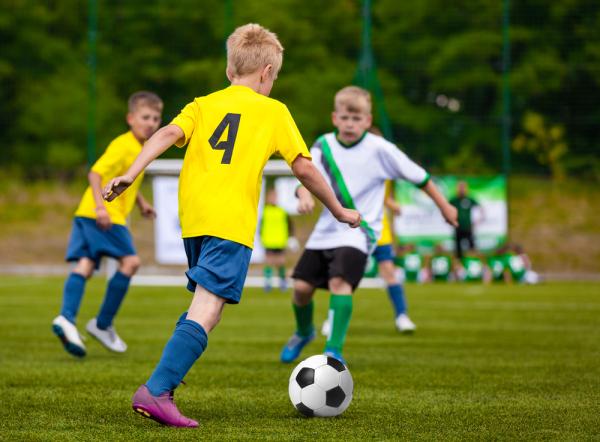There are other ways to put this.
It can be stated more delicately, and with greater subtlety. But doing so would dilute the importance of the message, and perhaps give the impression that there might be some redeeming qualities about what's going on here. So let's just call it what it is ...
It's a scam.
A dishonest, disingenuous, money-grubbing scam seeking to exploit parents by tapping into the deep-seated dreams they have of their children's potential and athletic prowess.
We're talking about a two-year-old outfit called Soccer Genomics, which according to its website, offers "an individualized and holistic approach that allows us to determine the player’s genetic predisposition and use it as reference to design an individualized program that assist the player’s in unlocking their potential."
Allow us to translate: These folks are offering to collect your child's DNA and have the genes analyzed, which they claim will provide unique information – a genetic field map, if you will – on how to make him/her a more talented soccer player.
There's only one big problem, the size of a soccer goal: Athletic talent cannot be quantified, gleaned or measured, and there is no scientific proof whatsoever that it can be altered or improved on a genetic level.
So, basically, what parents are getting for their introductory fee of $299 is an "individualized program" that's some guesswork strength and conditioning plan with dietary recommendations, delivered in a futuristic PDF wrapper of slick charts and graphs (a snapshot of a sample report is below, credit: Soccer Genomics). Another compelling yet unstated aspect to all this – playing to the egos of easily-manipulated parents – is that it's so different and "cutting edge" that they can reference it to showoff around other parents on the sidelines. Parents talk about their kids; it's a fact of life, and little Johnny's pre-game preparation will naturally come up in conversation.
 And to really rope in dreamy and the wide-eyed, the program "looks to impact the lives of all soccer players from as young as 4 years old to the professional level." Offering this to four-year olds? That, to say the least, is wildly speculative and terribly exploitive.
And to really rope in dreamy and the wide-eyed, the program "looks to impact the lives of all soccer players from as young as 4 years old to the professional level." Offering this to four-year olds? That, to say the least, is wildly speculative and terribly exploitive.
A primary reason Soccer Genomics is pitching its product straight to parents is because the medical and scientific community has already denounced the practice in clear, precise language, while warning parents to stay away from this type of direct-to-consumer, or DTC, medical marketing.
"In the current state of knowledge, no child or young athlete should be exposed to DTC genetic testing to define or alter training or for talent identification aimed at selecting gifted children or adolescents," wrote a group of 22 physicians and experts from around the world in a consensus statement published in the British Journal of Sports Medicine in December 2015.
"The general consensus among sport and exercise genetics researchers is that genetic tests have no role to play in talent identification or the individualised prescription of training to maximise performance," the critical statement continued.
And if all that wasn't damning enough we have this, with the group concluding that there's "concern among the scientific community that the current level of knowledge is being misrepresented for commercial purposes."
Hmm.
Perusing Soccer Genomics's online marketing materials one frequently comes across the phrase "your gene composition indicates ..." It's used in player reports that assess, among other areas, "speed", "endurance", "strength", "flexibility and mobility", "risk of injury" and "nutrition." So, the Miami-based company states, it can use the child's DNA to size up his/her genetic strengths and weaknesses, assess metabolic function, and then use that information to create a specialized regimen. The concept is to recommend, with specificity, how to work out, and what foods to eat, all in the name of maximizing potential and becoming "DNA EmpoweredTM" (and yes, apparently the phrase is trademarked).
But do highly-motivated parents – those so wrapped-up in their kid's athletic future that they actually sign-on for this – really not know how to provide healthy meals? It's not complex, and information on this topic is widely available, especially in athletic circles. And parents – even if this was effective, which it is not – ask yourself: Isn't this taking children's nutrition to an absurd level?
And then, what do parents do with the report? Work out their kids on their own? Or do they then hand deliver Soccer Genomics's specific conditioning plan, supposedly tailored just for that child, to their kid's coach? (And with dozens of kids to train, how can that coach implement it?) The questions are seemingly endless, most resulting in head-scratching frustration.
Parents, the next time you're watching your child play, do us all a favor. As the kids pass the ball to each other, pass the word to a fellow Soccer Mom (or Dad) that this type of genetic analysis deserves a swift kick in the test kit.




